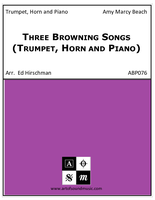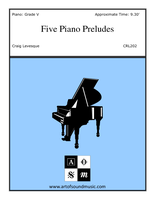Dorothy Parker Love Songs
| Composer | Harbach, Barbara |
|---|---|
| Duration | 14 |
| Ensemble | Soprano, Violin and Piano |
| Genre | Modern Classical |
| Grade | 4 |
| Model Number | AOS996 |
| Category | Mixed Chamber Music, Piano, Soprano, Violin, Voice and Chamber Ensemble |
Vocal Range: D♭4-C5
An American poet, short story writer, screenwriter, satirist and critic, Dorothy Parker (1893-1967) had an unerring acuity for commenting on twentieth-century urban peculiarities. She became renowned for her writing as in The New Yorker and as a member of the Algonquin Round Table.
Her poetry often has an ironic twist – a declaration of love in A Certain Lady that conceals the true feelings of the poet. Nocturne is a love affair that she knew would end – sooner or later. There are conflicting feelings in Love Song – on one side there is an ode to her lover, and on the flip side she wishes he were far away or worse.
I. A Certain Lady by Dorothy Parker 1926
Oh, I can smile for you, and tilt my head,
And drink your rushing words with eager lips,
And paint my mouth for you a fragrant red,
And trace your brows with tutored finger-tips.
When you rehearse your list of loves to me,
Oh, I can laugh and marvel, rapturous-eyed.
And you laugh back, nor can you ever see
The thousand little deaths my heart has died.
And you believe, so well I know my part,
That I am gay as morning, light as snow,
And all the straining things within my heart
You’ll never know.
Oh, I can laugh and listen, when we meet,
And you bring tales of fresh adventurings, —
Of ladies delicately indiscreet,
Of lingering hands, and gently whispered things.
And you are pleased with me, and strive anew
To sing me sagas of your late delights.
Thus do you want me — marveling, gay, and true,
Nor do you see my staring eyes of nights.
And when, in search of novelty, you stray,
Oh, I can kiss you blithely as you go ….
And what goes on, my love, while you’re away,
You’ll never know.
II. Nocturne by Dorothy Parker 1926
Always I knew that it could not last
(Gathering clouds, and the snowflakes flying),
Now it is part of the golden past
(Darkening skies, and the night-wind sighing);
It is but cowardice to pretend.
Cover with ashes our love’s cold crater-
Always I’ve known that it had to end
Sooner or later.
Always I knew it would come like this
(Pattering rain, and the grasses springing),
Sweeter to you is a new love’s kiss
(Flickering sunshine, and young birds singing).
Gone are the raptures that once we knew,
Now you are finding a new joy greater-
Well, I’ll be doing the same thing, too,
Sooner or later.
III. Love Song by Dorothy Parker
My own dear love, he is strong and boldv And he cares not what comes after.
His words ring sweet as a chime of gold,
And his eyes are lit with laughter.
He is jubilant as a flag unfurled —
Oh, a girl, she’d not forget him.
My own dear love, he is all my world, —
And I wish I’d never met him.
My love, he’s mad, and my love, he’s fleet,
And a wild young wood-thing bore him!
The ways are fair to his roaming feet,
And the skies are sunlit for him.
As sharply sweet to my heart he seems
As the fragrance of acacia.
My own dear love, he is all my dreams, —
And I wish he were in Asia.
My love runs by like a day in June,
And he makes no friends of sorrows.
He’ll tread his galloping rigadoon
In the pathway of the morrows.
He’ll live his days where the sunbeams start,
Nor could storm or wind uproot him.
My own dear love, he is all my heart, —
And I wish somebody’d shoot him.
Review from Issue 40:2 (Nov/Dec 2016) of Fanfare Magazine.
http://www.fanfarearchive.com/articles/atop/40_2/4023120.az_HARBACH_Terezin_Children_Songs.html
The text of the Dorothy Parker Love Songs demonstrates the unerring eye of this American poet for the foibles of urban existence. The musical style of this cycle is similar to that of the Terezin Songs,although it is more up-tempo and more metrically regular throughout. Harbach especially well expresses in her music the conflicted feelings evident in the final poem of the triad, “Love Song,” a whimsical text that begins, “My own dear love, he is strong and bold,” and ends with “And I wish somebody’d shoot him,” the latter line reinforced with a vocal swoop to the soprano’s high C. Marlissa Hudson’s soprano voice is several degrees weightier than that of Stella Markou, but seems perfectly suited to the tension in Parker’s texts.









